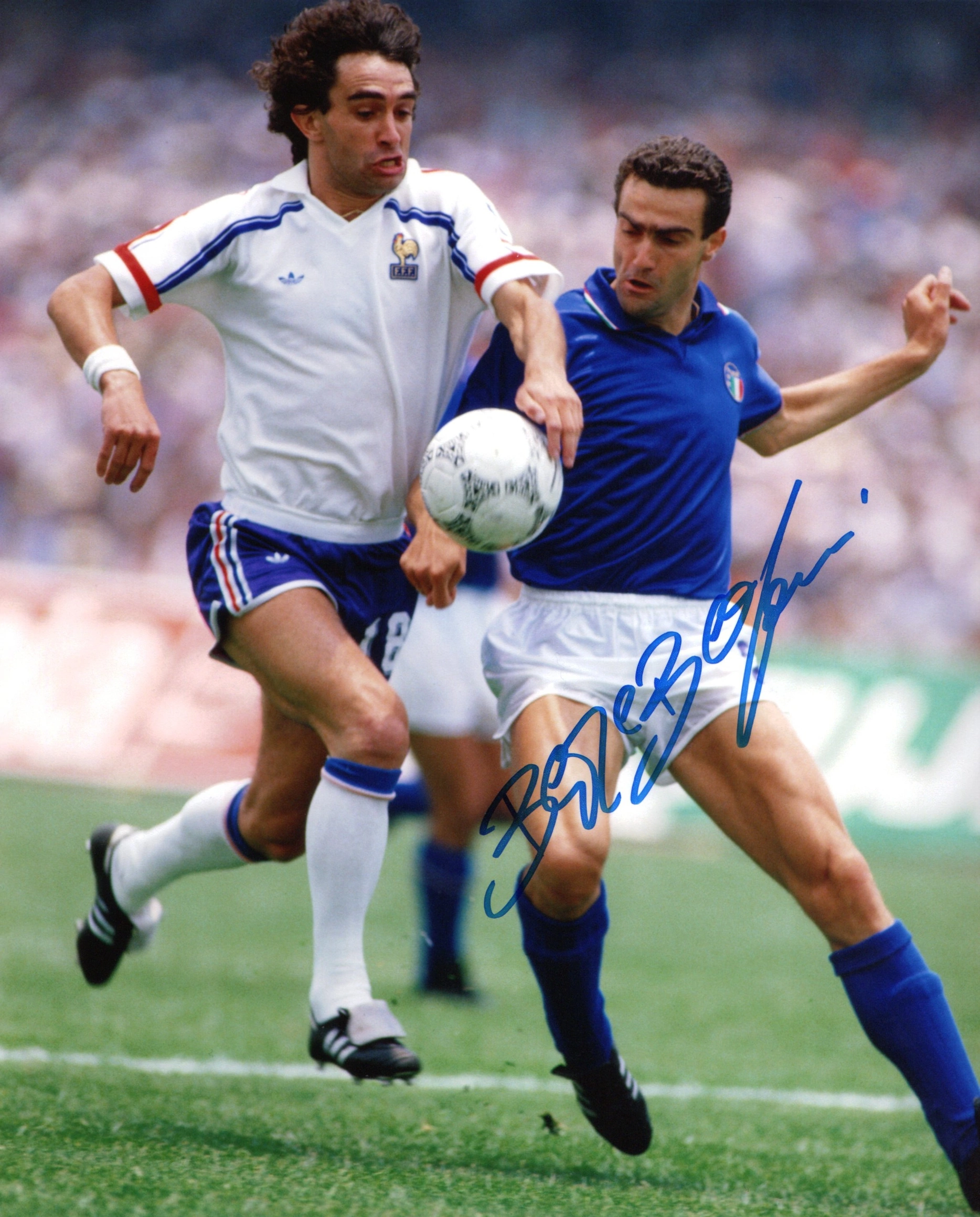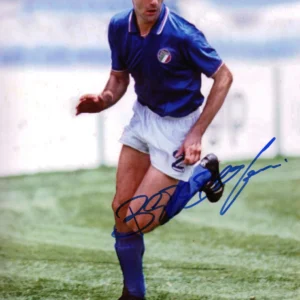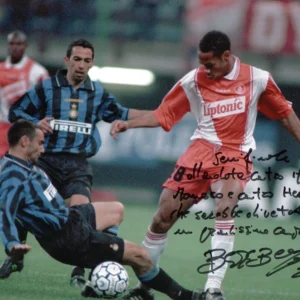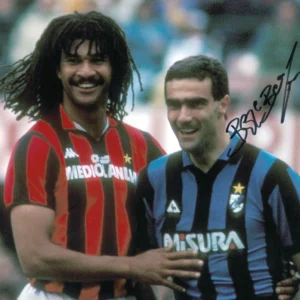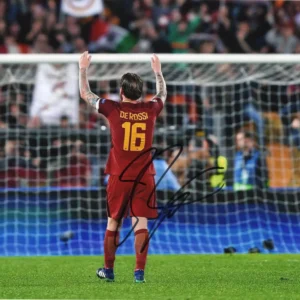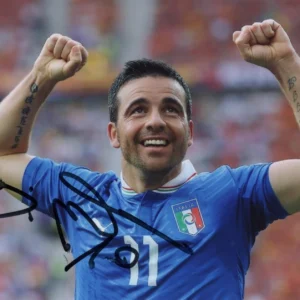Description
Giuseppe “Beppe” Bergomi (born 22 December 1963) is an Italian former professional footballer who spent his entire career at Internazionale. A one-club man, Bergomi held the record of most appearances for the club for several years, while also being the side’s longtime captain. He was affectionately referred to as “Lo zio” (“the uncle”) because of his bushy eyebrows and the impressive moustache he wore even as a youngster. He is regarded as one of the greatest Italian defenders of all time, and as one of the best of his generation, being elected by Pelé to be part of the FIFA 100 in 2004. Bergomi currently works as a pundit at Sky Sports Italia and frequently co-commentates on Serie A matches alongside Fabio Caressa.
Club career
Born in Milan, Bergomi began training with F.C. Internazionale Milano’s first team at the age of only 16, and made his professional debut in the 1980–81 season. After winning the Coppa Italia the following year, go on to spend his entire career with Inter, later becoming team captain. The 20 Serie A campaigns in which he competed were often in the shadow of A.C. Milan, as he only won the Scudetto once, during a record-breaking campaign in 1988–89 (he did, however, conquer the UEFA Cup on three occasions, also reaching the final for a fourth time in 1997). For a moment, he held the records for both the most appearances in European competition by an Italian player and the most Milan derbies played, both later broken by Paolo Maldini. Bergomi retired in 1999 at the age of almost 36, holding the record of most appearances for Inter until late September 2011 when he was overtaken by Javier Zanetti. With 96 appearances, he currently holds the record for most appearances in the UEFA Cup, and in March 2004 he was named by Pelé as one of the top 125 greatest living footballers.
International career
With Italy Bergomi won the 1982 FIFA World Cup, and also played in the 1986 and 1990 campaigns (acting as captain in the latter), as well as UEFA Euro 1988, where the nation reached the semi-finals and he was elected part of the team of the tournament. Alongside the likes of Inter’s Giuseppe Baresi, his younger brother Franco of A.C. Milan and Juventus F.C. trio of Antonio Cabrini, Claudio Gentile and Gaetano Scirea, he formed the backbone of the national team’s defence for much of the 1980s, making his debut on 14 April 1982 in a 0–1 friendly loss in East Germany, aged only 18 years and 3 months, making him the youngest player to feature in a match for Italy post-World War II; in the victorious World Cup run in Spain he appeared in three games, including the full 180 minutes in the last two matches, keeping a clean sheet in the semi-final after coming on for injured Collovati. In the final, he also participated in Marco Tardelli’s iconic goal, along with Scirea. In the 1986 edition Italy were eliminated in the round-of-16, and Bergomi captained his country in the 1990 tournament – held on home soil – to a third-place finish, playing in all seven matches which included five consecutive wins and as many clean sheets, for a total of 518 minutes without conceding a goal and the best defensive record overall. After being sent off in a match against Norway for the Euro 1992 qualifiers, Bergomi spent years without being called up to the Azzurri, but was surprisingly selected for the 1998 World Cup at age 34, after playing 28 times in the league and leading the Nerazzurri to the UEFA Cup – his third and last. In France he started off as a reserve, but was substituted in during the last group stage match against Austria when Alessandro Nesta suffered a tournament-ending injury. He partnered for the rest of the tournament with Fabio Cannavaro, Alessandro Costacurta and Maldini, playing three games and leading Italy to a quarter-final finish, where they would be eliminated by hosts and eventual champions France, on penalties; this would be his 81st and final international appearance, to which he added six goals. Despite playing in four World Cups, Bergomi failed to make one single appearance in the qualifying stages.

